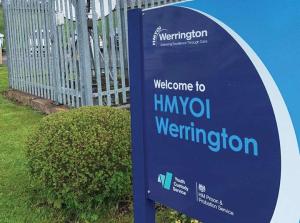Certain vulnerable children in England cannot receive free school meals because their eligibility is linked to their parent’s immigration status.
Free school meals are provided in all state schools for children in Reception, Year 1 and Year 2. From Year 3 onwards, parents can apply for free school meals if they claim certain state benefits.
But many children whose parents’ access to benefits is restricted due to their immigration status are not receiving free school meals. Those who are not allowed to claim state benefits (such as Income Support and Universal Credit) are considered to have ‘no recourse to public funds (NRPF).’
We spoke to three mums and their children about what it’s like not being able to access free school meals as a result of their NRPF immigration status.
My partner goes out to beg for food on the street
“It’s not been easy,” one mum with three children tells us. “My partner goes out to beg for food on the street.”
“I got into debt with the school meals. I was told if I can’t pay, I must bring packed lunch, but I can’t afford that on the money I am given.”
A family being supported by social services due to destitution might receive just £35.39 per person per week, and in some cases even less. For one parent we spoke to, school dinners are costing her over £20 per week.
Another parent spoke about her children feeling singled out when the register is taken. Most people in her daughter’s class have school meals, but she can’t afford them and during register her daughter must put her hand up and say she’s having a packed lunch.
Her daughter said, “I would like school meals but I have a packed lunch because it’s easier for mummy as she doesn’t have to pay as much.”
“Sometimes I feel embarrassed because I can’t have certain things. Most days I don’t have breakfast and my teacher was worried I wasn’t eating.”
Mummy I feel stressed and unhappy about it
And her mum can see the impact. “My daughter is stressed. She said to me, ‘Mummy I feel stressed and unhappy about it’. The pressure of hiding from everyone, she can’t eat the same as everyone and is trying to go cheaper make it go further.”
Some local authorities are seeking to address this issue. Hackney is working to ensure families with no recourse to public funds who they are supporting under section 17 of the Children Act 1989 can afford school dinners. Lewisham has committed to ensuring children affected by NRPF are given free school meals.
The charity Project 17 also works to end destitution among migrant children and provides support for families with no recourse to public funds. Their Policy Officer, Eve Dickson told us, “It costs an average of £437 per year to provide a child with a school meal during term time. We would like to see the abolition of the no recourse to public funds condition and we are calling for the extension of universal free school meals beyond the current universal provision so that no child goes hungry during the school day.”
It’s a message the mums and children we spoke to would agree with.






